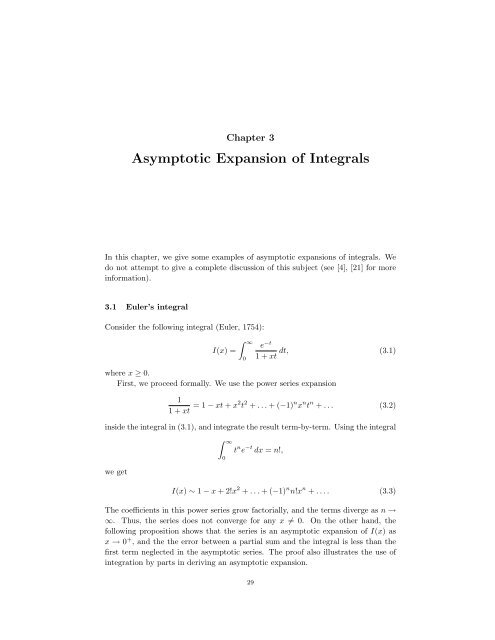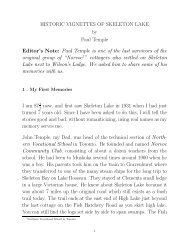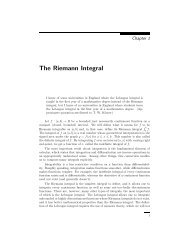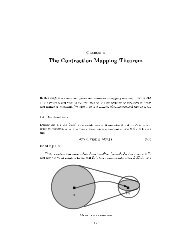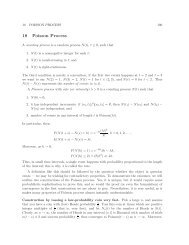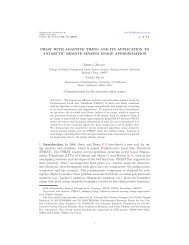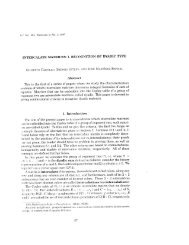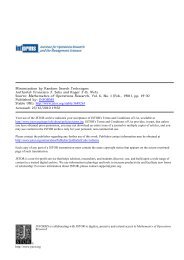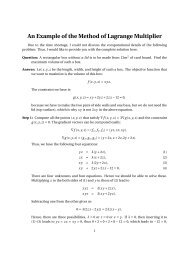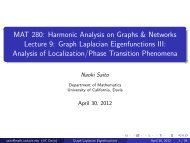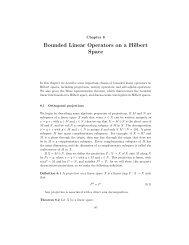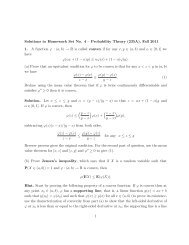Asymptotic Analysis and Singular Perturbation Theory
Asymptotic Analysis and Singular Perturbation Theory
Asymptotic Analysis and Singular Perturbation Theory
You also want an ePaper? Increase the reach of your titles
YUMPU automatically turns print PDFs into web optimized ePapers that Google loves.
Chapter 3<br />
<strong>Asymptotic</strong> Expansion of Integrals<br />
In this chapter, we give some examples of asymptotic expansions of integrals. We<br />
do not attempt to give a complete discussion of this subject (see [4], [21] for more<br />
information).<br />
3.1 Euler’s integral<br />
Consider the following integral (Euler, 1754):<br />
I(x) =<br />
∞<br />
0<br />
e−t dt, (3.1)<br />
1 + xt<br />
where x ≥ 0.<br />
First, we proceed formally. We use the power series expansion<br />
1<br />
1 + xt = 1 − xt + x2 t 2 + . . . + (−1) n x n t n + . . . (3.2)<br />
inside the integral in (3.1), <strong>and</strong> integrate the result term-by-term. Using the integral<br />
we get<br />
∞<br />
t<br />
0<br />
n e −t dx = n!,<br />
I(x) ∼ 1 − x + 2!x 2 + . . . + (−1) n n!x n + . . . . (3.3)<br />
The coefficients in this power series grow factorially, <strong>and</strong> the terms diverge as n →<br />
∞. Thus, the series does not converge for any x = 0. On the other h<strong>and</strong>, the<br />
following proposition shows that the series is an asymptotic expansion of I(x) as<br />
x → 0 + , <strong>and</strong> the the error between a partial sum <strong>and</strong> the integral is less than the<br />
first term neglected in the asymptotic series. The proof also illustrates the use of<br />
integration by parts in deriving an asymptotic expansion.<br />
29


